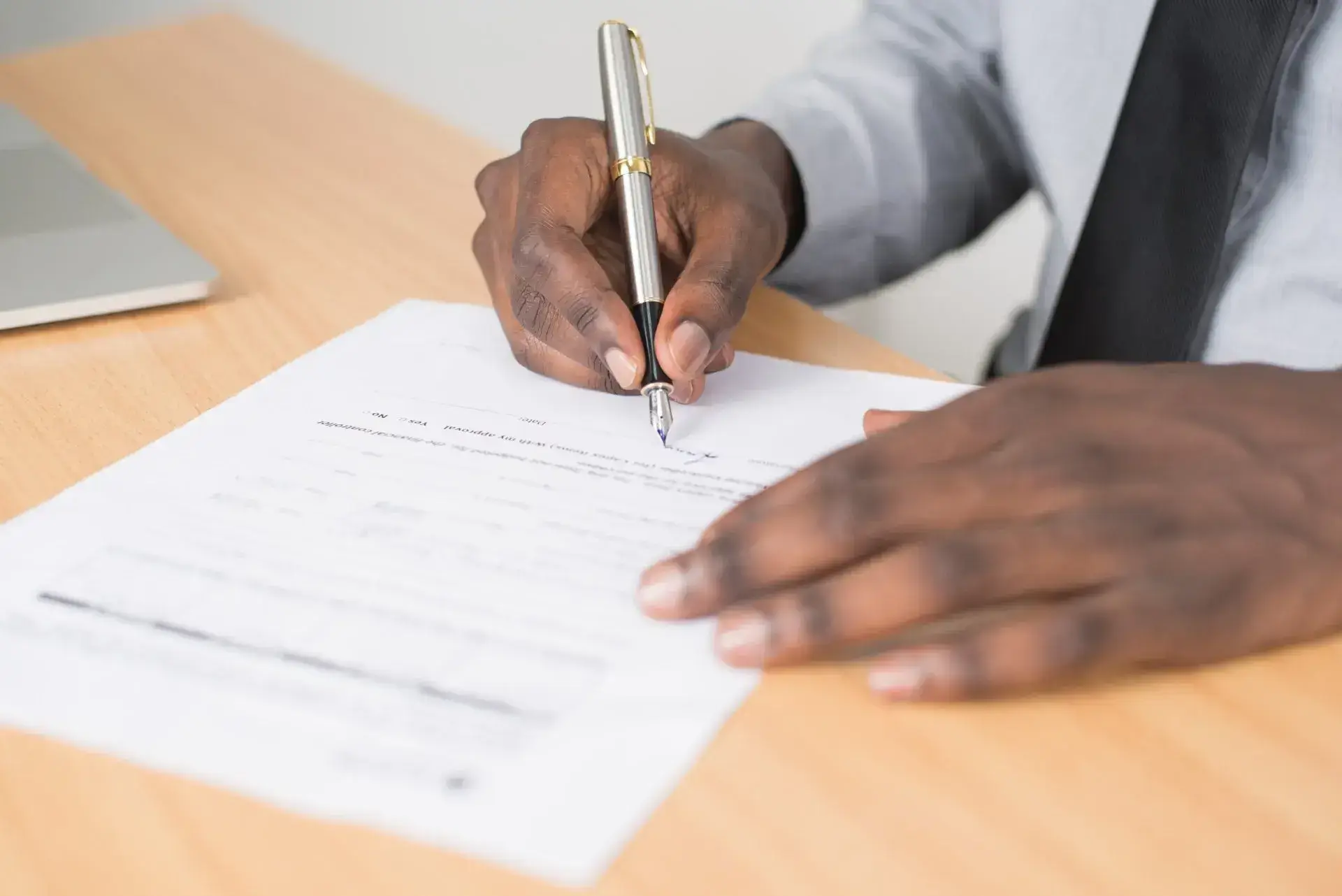Scottish Legal Rights to inherit: Your duties as Executor
When someone dies in Scotland, their children and spouse/civil partner always have a claim on that person’s estate, regardless of what the person’s Will says. These are called ‘Legal Rights’ and only apply in Scotland.
If you are the Executor for an estate under Scottish law, you need to understand how Legal Rights work and whether they are relevant for the estate. Otherwise, you could be personally responsible for paying money out to claimants.
In this article
- When do you need to consider Legal Rights?
- Who can claim inheritance under Scottish Legal Rights?
- What can people claim?
- How long do people have to claim?
- Executors’ responsibilities around Legal Rights
- Get a helping hand
When do you need to consider Legal Rights?
As an Executor, you only have to consider Legal Rights if the person is survived by:
- their legal spouse or civil partner
- their children or grandchildren (of any age)
Otherwise, Legal Rights are not relevant for any estate.
Estates with a Will
If the person left a Will, you need to consider Legal Rights if they have:
- a legal spouse/partner AND at least one child or grandchild; or
- a legal spouse/partner, but no children or grandchildren, and the Will does not leave everything to their spouse; or
- no legal spouse/partner, but at least one child or grandchild, and the Will does not divide everything equally between the number of children.
Estates without a Will
If they did not leave a Will, Legal Rights are taken into account when
the law dictates who inherits the estate. You still need to understand how they work if the person has a surviving legal spouse/civil partner or any children or grandchildren.
Who can claim inheritance under Scottish Legal Rights?
Regardless of what the Will says, certain family members have a legal claim to the someone’s ‘moveable estate’ after that person dies.
What is a moveable estate?
The ‘moveable estate’ refers to all the money and assets the person owned when they died, excluding any property or land.
Someone might be able to make a claim under Legal Rights if the person who died was their legal spouse or civil partner, parent, or grandparent.
Spouses and civil partners
Partners of the person who died can make a Legal Rights claim as long as they were legally married or in a civil partnership.
Unmarried partners can sometimes make a claim under ‘Section 29’, but this is not an automatic right, and must be done within 12 months.
Section 29 – Legislation.gov.uk
If your partner has died and you were not legally married or in a civil partnership, you need to speak to a lawyer if you want to make a claim under Section 29.
Adult children
Someone over 18 can make a Legal Rights claim if the person who died was:
- named as their parent on their birth certificate, adoption certificate or declaration of parentage
- their biological parent
Legal Rights do not apply to foster parents or step parents. If you’re not sure about legal parentage, it’s best to speak to a lawyer.
Adult grandchildren
Grandchildren can claim their parent’s share only if that parent has died.
Children and grandchildren under 18
People under 18 have the same rights to a claim as adult children and grandchildren. However, they are below the ‘responsible age’ to either make a claim or ‘discharge a claim’ (sign away their rights). In this situation, we recommend holding back the potential value of their claim.
What can people claim?
Claims are based on the value of someone’s moveable estate, after certain expenses have been paid out.
The person’s legal partner/spouse is entitled to:
- half the moveable estate if the person never had any children, or if their children and any grandchildren died before them
- a third of the moveable estate if they have at least one surviving child or grandchild, of any age
Children or grandchildren (of any age) are entitled to:
- half the moveable estate, equally divided between the number of children, if the person has no legal partner/spouse
- a third of the moveable estate, equally divided between the number of children, if the person has a surviving legal partner/spouse
Gifts
If the person gave any gifts to a claimant before they died, this will affect the amount of their potential claim. This is called ‘collation’. We recommend getting legal advice in this situation, particularly if there is more than one potential claimant.
Example
This example uses a fictional woman called Morag who has died.
Morag was legally married to Ali. They have two adult children, Heather and Sam. Heather has one child and Sam had 2 children. Sam died before Morag.
After deducting the relevant debts and expenses, Morag’s estate consists of a house and £60,000 in a bank account.
Her Will leaves the house to Ali and leaves the £60,000 equally between Ali and a charity.
- Heather and Sam, her children, can claim one third of the moveable estate equally between them. A third of the moveable estate is worth £20,000, so they could claim £10,000 each.
- Because Sam has died, his children can claim his share instead, equally divided. So Sam’s children can claim £5,000 each.
- Heather’s children cannot make a claim because Heather is still alive.
By law, the Executors of Morag’s Will must contact Heather and both of Sam’s children to tell them about their potential claim.
If everyone chooses to claim, the value of the moveable estate becomes £40,000. This is then divided between Ali and the charity, according to the terms of the Will.
As Morag’s husband, Ali is legally entitled to one third of the moveable estate. However, the amount he has been left in the Will is higher than the amount he would have been entitled to claim. This means the executors do not have to get in touch with him about Legal Rights.
Our Confirmation support packages include detailed help working out the value of claims or potential claims
How long do people have to claim?
People can make a Legal Rights claim for 20 years after someone dies, sometimes longer.
Help making a claim
As we are not a legal firm, we can’t give advice to potential claimants. If your spouse, parent or grandparent has died and you want to make a Legal Rights claim, please contact a solicitor.
Executors’ responsibilities around Legal Rights
As an Executor, it is your legal responsibility to:
- understand whether Legal Rights are relevant to the estate
- contact potential claimants to tell them they could claim
- get potential claimants to either make a claim or ‘discharge’ their claim, meaning they sign away their rights
If you don’t do this, you could be personally liable for paying out any future claim, jointly with other Executors, including interest.
If you are worried that claimants might come forward in the future despite your best efforts, you could get
Missing Beneficiary Insurance.
1. Are Legal Rights relevant to the estate?
As an Executor, you need to consider Legal Rights if the person who died has a legal spouse/partner or any children (‘potential claimants’).
You first need to work out the amount potential claimants could be entitled to.
- Add up the value of all the deceased’s worldwide assets.
- do not include property/land.
- do include assets held in trusts if the person was still benefiting from them.
2. Deduct debts and expenses, including:
- debts or other liabilities the person had on the day they died
- funeral expenses
- expenses of administering the estate up to, and including, the point of applying for Confirmation, like the court fee, extra death certificates, and professional fees.
3. Split the leftover money according to Legal Rights, as described under ‘What can people claim?’
Working this out can be difficult. Our
support packages can help you with these calculations, although you might need legal advice if your situation is complicated.
2. Contacting potential claimants
Once you know the value of a potential claim, you have to contact potential claimants if:
- they are not included in the Will at all
- the amount left to them in the Will is worth less than they could claim under Legal Rights
- there is no Will
You are legally responsible for tracking down potential claimants to tell them their rights. This might be difficult if a potential claimant was estranged from the person who died. You still need to contact them. If a potential claimant has not discharged their claim, they could still come forward to make a claim for at least 20 years after the person died.
Can’t find a claimant?
If you’re having trouble finding a potential claimant, there are services available that specialise in tracking them down.
In the meantime we recommend keeping the amount they could claim in a separate, interest bearing, account.
3. Making or discharging a claim
If someone chooses to make a Legal Rights claim, that means they give up anything else that is left to them in the Will. They must either accept the terms of the Will or claim their Legal Rights.
This decision is up to each individual. If one person discharges their Legal Rights, this does not affect the rights of other claimants.
Paying a claim
If someone chooses to make a claim, you should treat the amount they are entitled as if it were part of the Will, and ignore anything else left to the person in the Will, if there is one.
Discharging a claim
If potential Legal Rights claimants are happy to honour the terms of the Will and are not claiming their Legal Rights, they need to sign a ‘discharge of Legal Rights’, a letter that confirms they are happy to accept the terms of the Will.
This discharge letter needs to be signed willingly and with full possession of the facts. You need to tell potential claimants to seek independent legal advice if they are in any way unsure about signing away their rights.
Claimants under 18
If a potential claimant is under 18, they are below the ‘responsible age’ to make or discharge a claim. In this case, you could:
- hold back money until children turn 18 and can make a decision for themselves.
- ask the beneficiaries in the Will to sign a letter agreeing to pay a future claim from someone currently under 18.
If you still have questions about a Legal Rights claim for someone who is under 18, you might need to speak to a lawyer.
If a potential claimant is over 18 but cannot make legal decisions for themselves, we also recommend speaking to a lawyer.
Get a helping hand
Our Confirmation support packages include support navigating Legal Rights, including:
- checking your calculations
- providing template letters to make or discharge a claim
We do not offer legal advice, and we will always tell you when we recommend using a solicitor.
Explore our support packages




